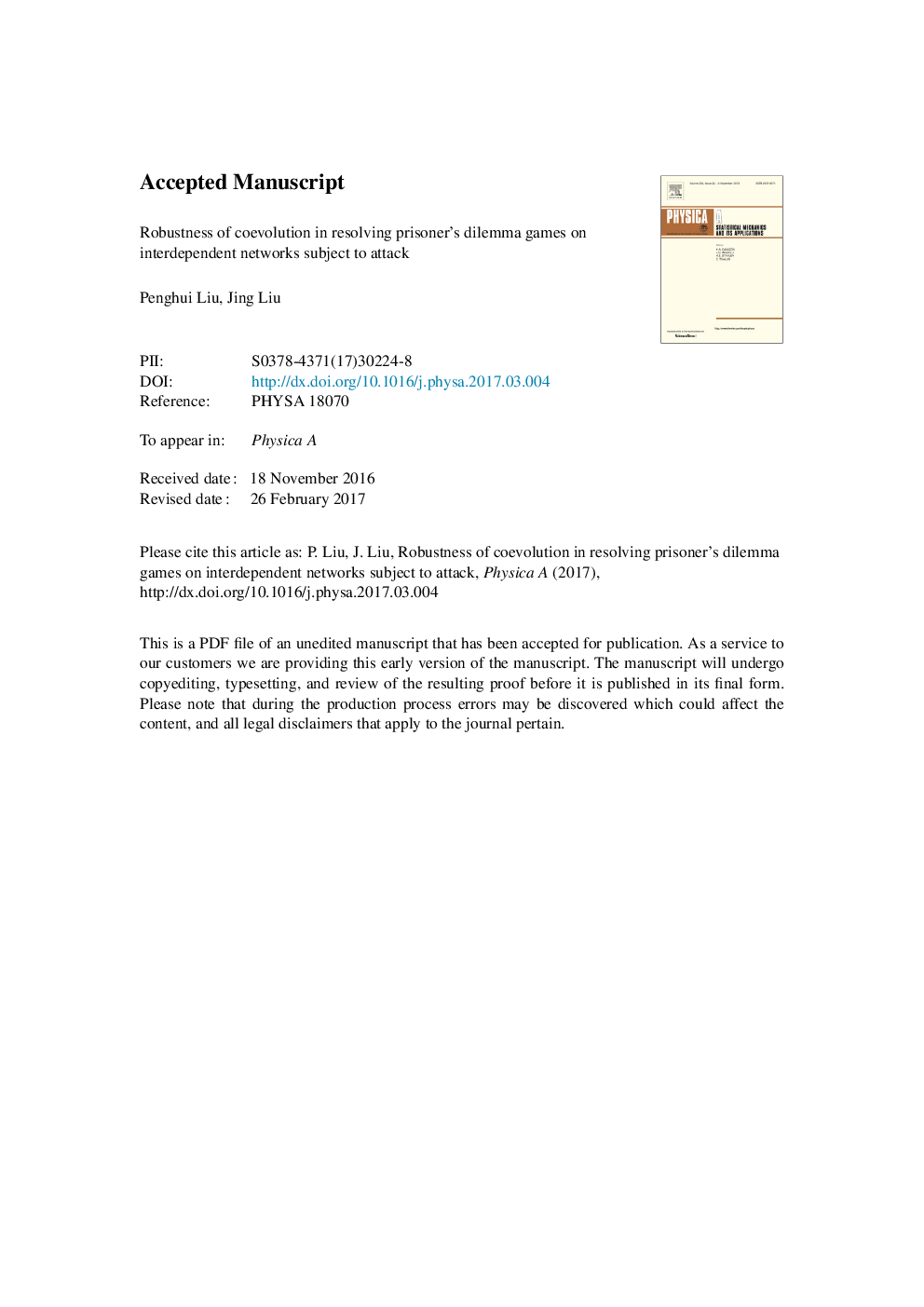| Article ID | Journal | Published Year | Pages | File Type |
|---|---|---|---|---|
| 5102990 | Physica A: Statistical Mechanics and its Applications | 2017 | 19 Pages |
Abstract
Recently, coevolution between strategy and network structure has been established as a rule to resolve social dilemmas and reach optimal situations for cooperation. Many follow-up researches have focused on studying how coevolution helps networks reorganize to deter the defectors and many coevolution methods have been proposed. However, the robustness of the coevolution rules against attacks have not been studied much. Since attacks may directly influence the original evolutionary process of cooperation, the robustness should be an important index while evaluating the quality of a coevolution method. In this paper, we focus on investigating the robustness of an elementary coevolution method in resolving the prisoner's dilemma game upon the interdependent networks. Three different types of time-independent attacks, named as edge attacks, instigation attacks and node attacks have been employed to test its robustness. Through analyzing the simulation results obtained, we find this coevolution method is relatively robust against the edge attack and the node attack as it successfully maintains cooperation in the population over the entire attack range. However, when the instigation probability of the attacked individuals is large or the attack range of instigation attack is wide enough, coevolutionary rule finally fails in maintaining cooperation in the population.
Related Topics
Physical Sciences and Engineering
Mathematics
Mathematical Physics
Authors
Penghui Liu, Jing Liu,
